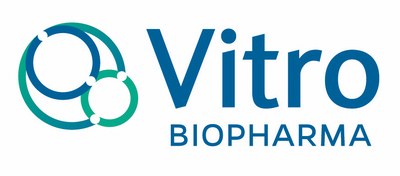Novel Science
Our lead investigational product candidate is our cell-based therapy product (“AlloRx Stem Cell therapy”), which is based on our patent pending and proprietary AlloRx® stem cells (“AlloRx Stem Cells”) that are derived from culture-expanded MSCs sourced from the Wharton’s jelly of umbilical cords (“UCs”) donated by healthy volunteers following childbirth. During our manufacturing process, we utilize our proprietary specialty culture media, MSC-Gro, to support the growth and expansion of MSCs from umbilical cords to create AlloRx Stem Cells. MSC-Gro has been developed by us over 20 years of research and development. We have also developed other cell culture processes that are applied during our manufacturing process, which, together with MSC-Gro, we believe confers additional therapeutic benefits to AlloRx Stem Cells and generates increased adenosine triphosphate (“ATP”) expression (an energy molecule), viability, immunosuppression measurement and yield.
We believe AlloRx Stem Cells are superior to other MSCs, such as MSCs derived from BM-MSCs, AD-MSCs, P-MSCs and iPSCs. As compared to other MSCs, we believe that AlloRx Stem Cells may have increased potency, mobility, differentiation capacity, immunomodulation, and viability based on our pre-clinical studies and research, which is supported by third-party research and clinical studies of UC-derived MSCs. Because AlloRx Stem Cells are derived from umbilical cords, we believe they have a number of potential biological advantages compared to other MSCs, including superior potency based on measures of mitochondrial and immune suppression, cellular function advantages in migration, proliferation and viability, and the ability to differentiate into neural stem cells. UC-derived MSCs are also the youngest, most potent adult stem cells and are therefore generally free from issues related to age (such as mutations), and prior medical conditions that come with the use of BM-MSCs and AD-MSCs. In addition, unlike BM-MSCs, AD-MSCs or iPSCs, UC-derived MSCs involve a non-invasive collection process, are sourced and collected after childbirth, and may provide significant economies of scale in the manufacturing process. We believe these factors taken together may provide us with a competitive and financial advantage compared to other cell therapies currently in development that are derived from BM-MSCs, AD-MSCs or P-MSCs.
Our extensive knowledge of immunology and inflammatory conditions informs our decision making to advance the scientific and clinical path to demonstrate proof-of-concept. In preclinical and clinical studies conducted by third-parties, AlloRx Stem Cells and equivalent UC-derived MSC therapy product candidates have exhibited therapeutic benefits that we believe result from various mechanisms of action, including the ability to reduce inflammation, stimulate tissue repair and restore immune system balance. Based on this, we believe that AlloRx Stem Cells have the potential to reduce inflammation through activation of anti-inflammatory biochemical and cellular pathways, including reducing destructive pro-inflammatory cytokines, as well as by converting certain harmful pro-inflammatory macrophages, called M1 macrophages (a type of white blood cell that is vital to the immune system) to certain anti-inflammatory macrophages, called M2 macrophages.
Scalable Manufacturing: Key Competitive Advantage
Each lot of AlloRx Stem Cell therapy is derived from the Wharton’s jelly of donated umbilical cords, where young and potent MSCs are present. AlloRx Stem Cells are then culture-expanded in vitro using MSC-Gro, our proprietary specialty culture media, to produce more MSCs with potentially increased potency, viability and efficacy.
Leveraging the biological advantages of UC-derived MSCs and the increased technological and manufacturing capabilities in a new cGMP biomanufacturing facility, we believe that the number of AlloRx Stem Cell therapy treatments that we may be able to manufacture from just one umbilical cord could increase exponentially from current levels. We believe that these economies of scale may provide us with a significant competitive and financial advantage compared to other cell therapies currently in development that are derived from BM-MSCs, AD-MSCs or P-MSCs.


